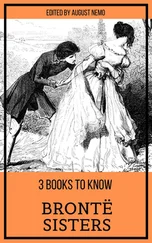James Farrer - Books Condemned to be Burnt
Здесь есть возможность читать онлайн «James Farrer - Books Condemned to be Burnt» — ознакомительный отрывок электронной книги совершенно бесплатно, а после прочтения отрывка купить полную версию. В некоторых случаях можно слушать аудио, скачать через торрент в формате fb2 и присутствует краткое содержание. Жанр: foreign_antique, foreign_prose, на английском языке. Описание произведения, (предисловие) а так же отзывы посетителей доступны на портале библиотеки ЛибКат.
- Название:Books Condemned to be Burnt
- Автор:
- Жанр:
- Год:неизвестен
- ISBN:нет данных
- Рейтинг книги:4 / 5. Голосов: 1
-
Избранное:Добавить в избранное
- Отзывы:
-
Ваша оценка:
- 80
- 1
- 2
- 3
- 4
- 5
Books Condemned to be Burnt: краткое содержание, описание и аннотация
Предлагаем к чтению аннотацию, описание, краткое содержание или предисловие (зависит от того, что написал сам автор книги «Books Condemned to be Burnt»). Если вы не нашли необходимую информацию о книге — напишите в комментариях, мы постараемся отыскать её.
Books Condemned to be Burnt — читать онлайн ознакомительный отрывок
Ниже представлен текст книги, разбитый по страницам. Система сохранения места последней прочитанной страницы, позволяет с удобством читать онлайн бесплатно книгу «Books Condemned to be Burnt», без необходимости каждый раз заново искать на чём Вы остановились. Поставьте закладку, и сможете в любой момент перейти на страницу, на которой закончили чтение.
Интервал:
Закладка:
"Oui, je l'avoue avec vous
Que tous les poêtes sont fous;
Mais sachant ce que vous êtes
Tous les fous ne sont pas poêtes."
Hélot also escaped with a burning in effigy when his L'Ecole des Filles was burnt at the foot of the gallows (1672). Lyser, who spent his life and his property in the advocacy of polygamy, was threatened by Christian V. with capital punishment if he appeared in Denmark, and his Discursus Politicus de Polygamia was sentenced to public burning (1677).
In the eighteenth century (1717) Gigli's satire, the Vocabulario di Santa Caterina e della lingua Sanese ; Dufresnoy's Princesses Malabares, ou le Célibat Philosophique (1734); Deslandes' Pigmalion ou la Statue Animée (1741); the Jesuit Busembaum's Theologia Moralis (which defends as an act of charity the commission to kill an excommunicated person), (1757); Toussaint's Les Mœurs (1748); and the Abbé Talbert's satirical poem, Langrognet aux Enfers (1760), – seem to complete the list of the principal works burnt by public authority. And of these the best is Toussaint's, who in 1764 published an apology for or retraction of his Mœurs , which has far less claim upon public attention than was obtained and merited by the original work.
III. Books condemned for some unpopular political tendency may likewise be arranged in the order of their centuries.
In the sixteenth, the most important are Louis d'Orléans' Expostulatio (1593), a violent attack on Henri IV., and condemned by the Parlement of Paris; Archbishop Génébrard's De sacrarum electionum jure et necessitate ad Ecclesiæ Gallicanæ redintegrationem (1593), condemned by the Parlement of Aix, and its author exiled. He maintained the right of the clergy and people to elect bishops against their nomination by the king. It is curious that the Parlement of Paris thought it necessary to burn the Jesuit Mariana's book De Rege (1599) as anti-monarchical, seeing that it appeared with the privilege of the King of Spain. He maintained the right of killing a king for the cause of religion, and called Jacques Clement's act of assassination France's everlasting glory ( Galliæ æternum decus ). But it is only fair to add that the superior of the Order disapproved of the work as much as the Sorbonne.
In the seventeenth century, I notice first the Ecclesiasticus of Scioppius, a work directed against our James I. and Casaubon (1611). The libel having been burnt in London, and its author hanged and beaten in effigy before the king on the stage, was burnt in Paris by order of the Parlement, chiefly for its calumnies on Henri IV. The author, originally a Jesuit, has been called the Attila of writers, having been said to have known the abusive terms of all tongues, and to have had them on the tip of his own. He wrote 104 works, apparently of the violent sort, so that Casaubon called him, according to the style of learned men in those days, "the most cruel of all wild beasts," whilst the Jesuits called him "the public pest of letters and society."
The Senate of Venice caused to be burnt the Della Liberta Veneta , by a man who called himself Squitinio (1612), because it denied the independence of the Republic, and asserted that the Emperor had rightful claims over it; and about the same time (1617) the Parlement of Paris consigned to the same penalty D'Aubigné's Histoire Universelle for the freedom of its satire on Charles IX., Henri III., Henri IV., and other French royal personages of the time. The second edition of D'Aubigné (1626) is the poorer for being shorn of these caustic passages.
The Jesuit Keller's Admonitio ad Ludovicum XIII. (1625), and the same author's Mysteria Politica, (1625), were both sentenced to be burnt; also the Jesuit Sanctarel's Tractatus de Hæresi (1625), which claimed for the Pope the right to dispose, not only of the thrones, but also of the lives of princes. This doctrine was approved by the General of the Jesuits, but, under threat of being accounted guilty of treason, expressly disclaimed by the Jesuits as a body. In resisting such pretensions, the Sorbonne deserved well of France and of humanity. In 1665, the Châtelet ordered to be burnt Claude Joly's Recueil des Maximes véritables et importantes pour l'Institution du Roi, contre la fausse et pernicieuse politique de Cardinal prétendu surintendant de l'éducation de Louis XIV. (1652); a book which, if it had been regarded instead of being burnt, might have altered the character of that pernicious devastator, and therefore of history itself, very much for the better. About the same time, Milton's Pro Populo Anglicano Defensio , not to be burnt in England till the Restoration, had a foretaste in Paris of its ultimate fate. Eustache le Noble's satire against the Dutch, Dialogue d'Esope et de Mercure , and burnt by the executioner at Amsterdam, may complete the list of political works that paid for their offences by fire in the seventeenth century.
The first to notice in the next century is Giannone's Historia Civile de Regno di Napoli (1723), in five volumes, burnt by the Inquisition, which, but for his escape, would have suppressed the author as well as his book, for his free criticism of Popes and ecclesiastics. His escape saved the eighteenth century from the reproach of burning a writer. Next deserves a passing allusion the Historia Nostri Temporis , by the once famous writer Emmius, whose posthumous book suffered at the hands of George Albert, Prince of East Frisia. The Parlement of Toulouse condemned Reboulet's Histoire des Filles de la Congrégation de l'Enfance (1734) for accusing Madame de Moudonville, the founder of that convent, of publishing libels against the king. That of Paris and Besançon condemned Boncerf's Des Inconvéniens des Droits Féodaux (1770).
The number, indeed, of political works burnt during the eighth decade of the last century is as remarkable as the number of religious books so treated about the same period: one of the lesser indications of the coming Revolution. During this decade were condemned: (1) Pidanzet's Correspondance secrète familière de Chancelier Maupeon avec Sorhouet (1771) for being blasphemous and seditious, and calculated to rouse people against government; a work that made sport of Maupeon and his Parlement. (2) Beaumarchais' Mémoires (1774), of the literary style of which Voltaire himself is said to have been jealous, but which was condemned to the flames for its imputations on the powers that were. (3) Lanjuinais' Monarque Accompli (1774), whose other title explains why it was condemned, as tending to sedition and revolt, Prodiges de bonté, de savoir, et de sagesse, qui font l'éloge de Sa Majesté Impériale Joseph II., et qui rendent cet auguste monarque si précieux à l'humanité, discutés au tribunal de la raison et l'équité . Lanjuinais, principal of a Catholic college in Switzerland, passed over to the Reformed Religion. (4) Martin de Marivaux's L'Ami des Lois (1775), a pamphlet, in which the author protested against the words put into the mouth of the king by Chancellor Maupeon, Sept. 7th, 1770: "We hold our Crown of God alone; the right of law-making, without dependence or partition, belongs to us alone." The author contended that the Crown was held only of the nation, and he excited the vengeance of the Crown by sending a copy of his work to each member of the Parlement. At the same time, to the same penalty and for the same offence, was condemned to the flames Le Catéchisme du Citoyen, ou Elémens du Droit public Français, par demandes et par réponses ; the episode, and the origin of the dispute, clearly pointing to the rapidly approaching Revolutionary whirlwind, the spirit of which these literary productions anticipated and expressed.
Читать дальшеИнтервал:
Закладка:
Похожие книги на «Books Condemned to be Burnt»
Представляем Вашему вниманию похожие книги на «Books Condemned to be Burnt» списком для выбора. Мы отобрали схожую по названию и смыслу литературу в надежде предоставить читателям больше вариантов отыскать новые, интересные, ещё непрочитанные произведения.
Обсуждение, отзывы о книге «Books Condemned to be Burnt» и просто собственные мнения читателей. Оставьте ваши комментарии, напишите, что Вы думаете о произведении, его смысле или главных героях. Укажите что конкретно понравилось, а что нет, и почему Вы так считаете.












